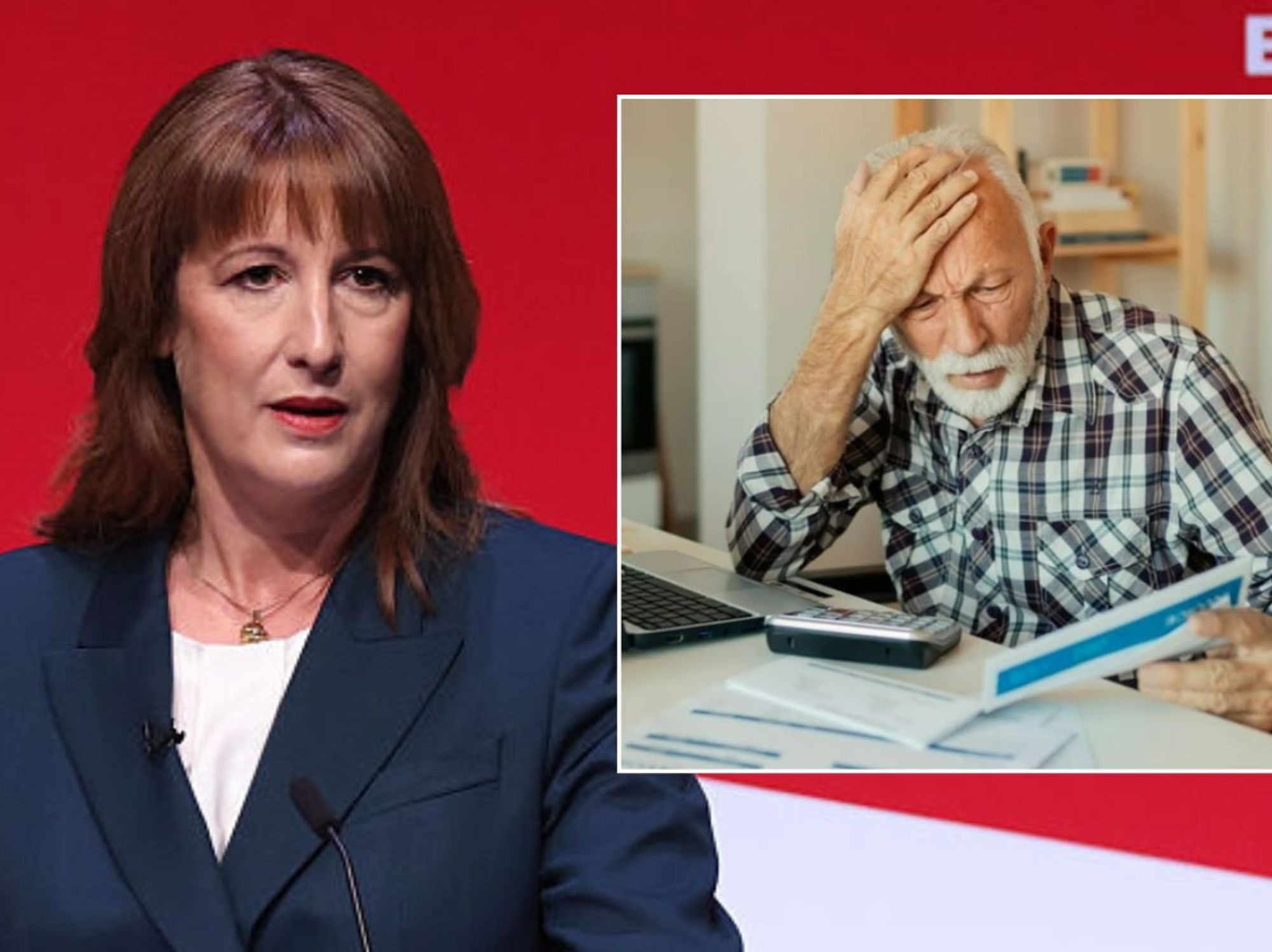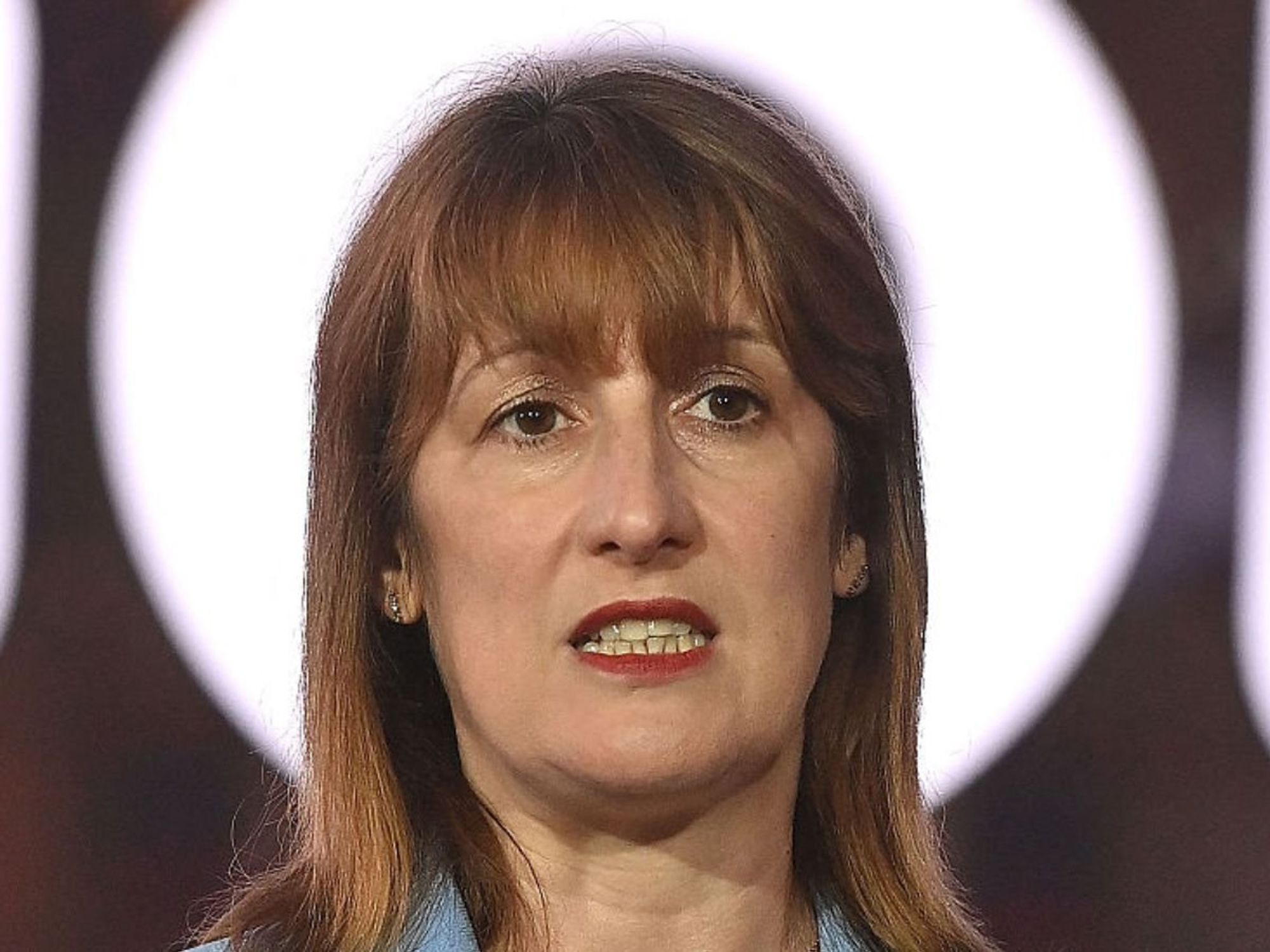'We worked, we paid in - now we struggle': State pension fury as payments not even enough to cover basics

Nearly a third of pensioners face financial hardship, with many relying on state support despite decades of work
Don't Miss
Most Read
Life in retirement is proving far tougher than many expected, with new research revealing the scale of financial strain facing older people.
Rising bills, mounting debts and a reliance on handouts are leaving thousands of pensioners struggling to get by.
Research for the Living Wage Foundation reveals a stark reality for elderly citizens who believed their working years would secure comfortable retirements.
Sheila, a pensioner in her 80s exemplifies these struggles. "It's tough, really tough," she said. "Everyone thinks older people are all rich, but it's just not true."
To keep warm in winter she goes running every day, and in summer she tries to grow as many vegetables as possible to cut costs.
She said: "Our pension barely covers the basics, so there is no room for anything extra. We worked, we paid in, and now we're left to struggle."
Like many living alone, Sheila finds the struggle constant.
She added: "When something breaks, the boiler, fridge, or I need a new pair of shoes, I panic, because I know I can’t just replace it. The constant stress and worry chips away at you.
"Living on my own also makes it harder. There’s no one to share bills with, no family to lean on. We pensioners are not asking for luxuries, we just want enough to get by. We worked, we paid in, and now we’re left to struggle."
The survey of over 500 UK residents aged 66 and above revealed that 30 percent carry debt burdens, whilst 35 percent depend on supplementary income from benefits, relatives or partners to meet basic needs.
 State pensioners are set to see a further tightening on finances | GETTY
State pensioners are set to see a further tightening on finances | GETTY One in five pensioners are struggling to manage an unexpected £200 expense, leaving them vulnerable if essential items like appliances break down or need urgent repairs.
Housing status plays a big role in financial stability. Among renters, 43 per cent reported being in debt, compared to just 23 per cent of homeowners. Solo-living pensioners are even more likely to be in debt, with 40 per cent affected, while only 25 per cent of those living with a partner face the same issue.
The impact of emergency costs is even more severe for those living alone. A third (34 per cent) of single pensioners can’t cover an unexpected £200 expense, compared to just 14 per cent of couples. Renters are also struggling more, with 31 per cent unable to manage such costs compared to 15 per cent of homeowners.
Nearly half of pensioners have had to cut back on entertainment and leisure activities, while 43 per cent have reduced their spending on gifts and donations. A quarter of pensioners say they can rarely afford the little things that make life enjoyable.
 Even those on lower incomes see significant benefits from financial planning | GETTY
Even those on lower incomes see significant benefits from financial planning | GETTYFinancial strain is taking a serious toll on mental wellbeing, with 26 per cent of pensioners feeling more anxious and 25 per cent struggling with disrupted sleep due to worries about money.
Surprisingly, 42 per cent of those struggling financially had earned middle to high salaries throughout their careers. Despite decades of work, 54 per cent do not have workplace pensions and rely entirely on state provisions to get by.
One in five pensioners are using their savings just to cover everyday expenses, according to a survey by Savanta in June. The research found that income needs vary depending on living situation — for example, single homeowners need £1,162 per month to meet basic needs, while couples renting privately require £2,489.
Katherine Chapman, director of the Living Wage Foundation, stated: "These findings show the tough reality for too many pensioners who, after a lifetime of work, are still left without enough to live on.
“No one should be worrying about putting the heating on when it’s cold or boiling the kettle for a cup of tea."
Samantha Brown, a managing partner at living pension employer Herbert Smith Freehills Kramer, said: "Tackling the retirement savings gap will require a multi-pronged approach: expanding access to workplace savings schemes, improving financial literacy, and encouraging consistent long-term contributions.
"The key to this lies in exploring innovative strategies and advocating for policy reforms that help build more resilient retirement outcomes for future generations."
The Foundation's voluntary accreditation programme encourages employers to establish pension savings targets ensuring workers accumulate sufficient retirement funds. Over 75 organisations, including Everton Football Club, Aviva and L&G, participate in the scheme.
 Without reforms to encourage greater pension savings among top earners, the retirement income gap will continue widening | GETTY
Without reforms to encourage greater pension savings among top earners, the retirement income gap will continue widening | GETTYA Government spokesperson said: "Supporting pensioners is a top priority and, thanks to our commitment to the triple lock, millions will see their yearly state pension rise by £1,900 this Parliament.
"We have also run the biggest-ever campaign to boost pension credit take-up, with over 57,000 extra pensioner households being awarded the benefit, worth on average around £4,300 a year.
"To ensure tomorrow’s pensioners will not be poorer than today’s, we are reviving the Pension Commission to tackle the barriers that stop too many people from saving."
More From GB News










